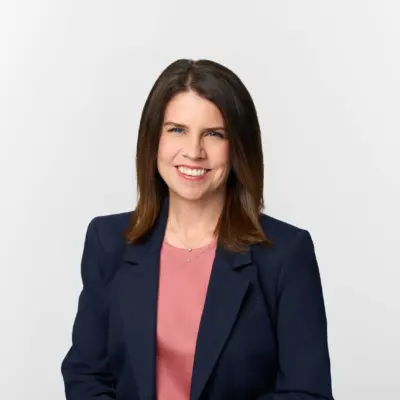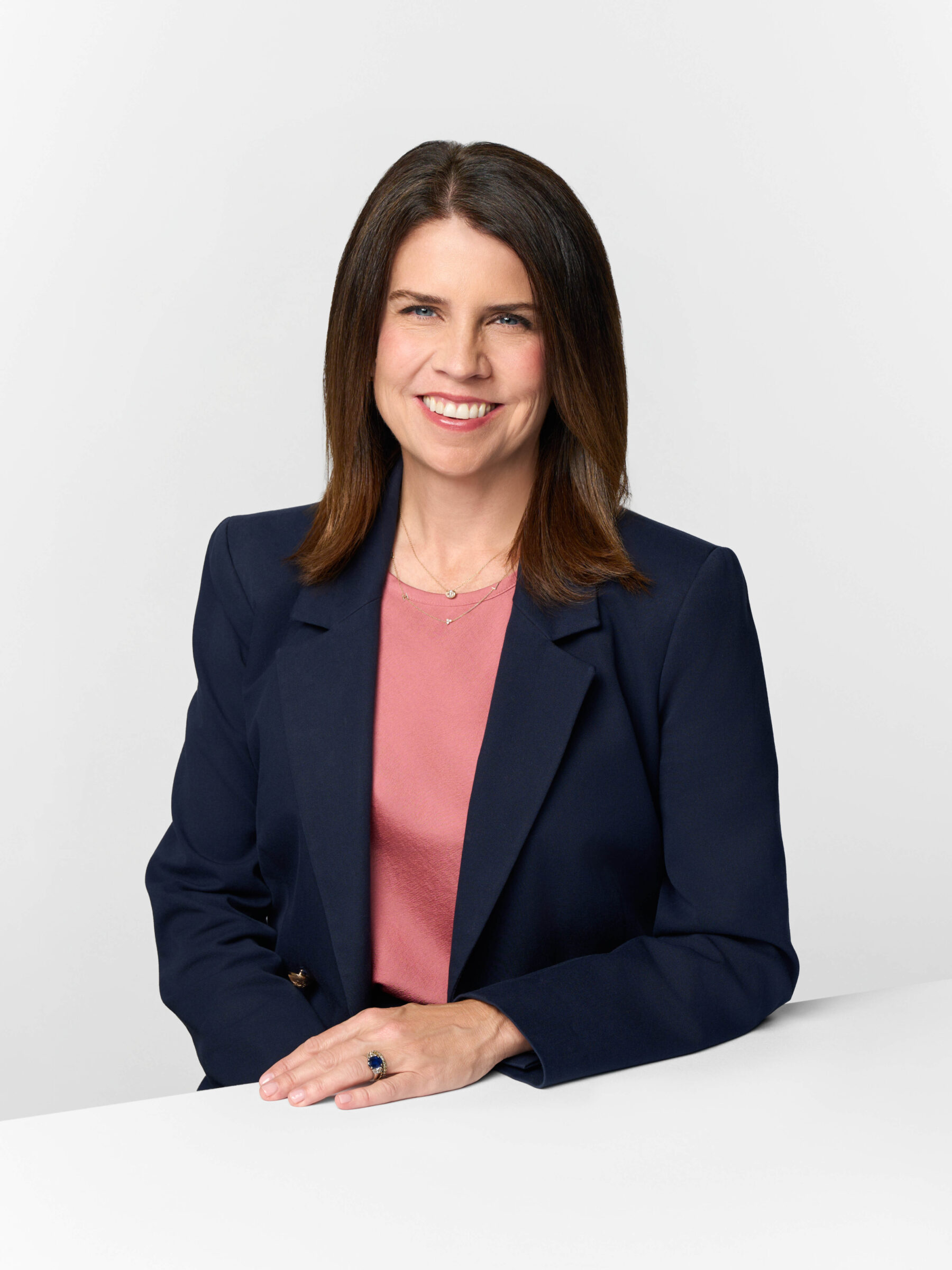Kelli Rhee’s route to the world of philanthropy was far from a straight line. After graduating with a degree in economics from Northwestern University and spending several years in the consulting world, Rhee felt something was missing.
“It didn’t feel quite as purposeful as I wanted,” she recalled. Her liberal arts education had taught her how to think critically, and her early consulting work gave her exposure to a wide range of business issues along with strategy and leadership lessons. So, she took a leave of absence to explore opportunities to use her skills and experience more intentionally. She did some work for a nonprofit and went back to school, enrolling at Stanford to get an MBA and a Master’s of Education. A summer spent working with the Chicago Public Schools, however, made her realize that “I did not have the patience for process and bureaucracy to work in a major urban school district.” After getting her degrees at Stanford, she spent some time at a startup and then in venture capital before her husband’s job brought the couple to Houston. While working at the Baylor College of Medicine, she met Arnold Ventures Co-Chair Laura Arnold, who was on the board. The two worked together over the next few years.
“I was incredibly impressed,” Kelli said. “Laura was super sharp and asked the most pointed, thoughtful questions. She was very strategic. I believed so much in what she and John were doing that eventually, when the opportunity presented itself to come to Arnold Ventures and start new programs, I jumped.”
That was almost eight years ago. Today, she’s the president and CEO. In honor of National Women’s History Month, we spoke with Kelli about the opportunities she tries to create for other women in the workplace, how she’s preparing her own daughter for the work world, and the changes she sees coming in philanthropy.

Arnold Ventures
How do your previous experiences in the private sector inform what you do now?

Kelli Rhee
Coming from the private sector and coming from a strategy background, in particular, my mind always goes to, “What’s the root problem here? What are we trying to solve? What are the ways in which we can move forward, and which paths forward have the highest opportunity for impact and success?” It doesn’t matter if you’re applying that line of thinking to a for-profit business or you’re applying it to improving conditions inside a prison, that strategic mentality transcends everything I do and how I approach all facets of our work at Arnold.

Arnold Ventures
What are some of the programs that Arnold Ventures funds that have an impact on women in particular?

Kelli Rhee
There are several programs and initiatives that impact women specifically. One is our focus on contraceptive choice and access. We believe that women should have information and access to contraception that meets their needs. But in our country, things don’t actually play out that way. There are plenty of groups of women who not only don’t have access to the information that they need to make that choice but don’t have access to the forms of contraceptives they’re looking for, or they don’t have a way to pay for it. In other words, many women don’t have their care provided in a way that meets their individual needs.

Arnold Ventures
Does philanthropy suffer from the same lack of diversity as corporate America?

Kelli Rhee
In fact, our sector has more gender diversity than many areas of corporate America. But the higher you rise within any sector, typically the fewer women you see, and you see even fewer minorities. That’s just a problem across the board.

Arnold Ventures
Why is it important to have more women in leadership positions in philanthropy?

Kelli Rhee
First, women have a unique frame of reference. We have different life experiences and perspectives than men, so having women in leadership roles, too, gives us a more complete and robust picture of the work. And second, there are fewer women in leadership positions, and so as a female leader, I am attuned to providing opportunities for women to be mentored, supported, and given roles to stretch and grow to increase our representation.

Arnold Ventures
In looking back, what opportunities helped your own career?

Kelli Rhee
There were two that were most pivotal, and both opportunities were about stepping up and into the unknown. One was right out of business school: I was given the opportunity to run finance and operations at a startup when, honestly, I’m not really sure I was qualified. But the CEO believed in me, and she believed that I was going to figure it out, and I did. Being given that opportunity to step up and prove myself has given me confidence to take risks and stretch as a professional. The same thing happened here when I took over as CEO three and a half years ago. Our co-founders knew me well. I had worked for them for almost five years. But they were still taking a chance on me, as I hadn’t run an organization before. I have learned, grown as a leader, and had more fun over the last three and a half years than I could have ever imagined.
These two opportunities taught me to not be afraid to take an opportunity that will require stretching and growth. And a leader, these experiences inspire me to create opportunities for others to do the same- step into the unknown, reach for new levels, and go for it.

Arnold Ventures
How do you set that example or help to create opportunities for the next generation?

Kelli Rhee
I think creating opportunities for others is an important part of a leader’s mindset. I try to constantly ask myself questions like: Am I creating opportunities for my team to grow? Am I opening doors for others, especially those who might not typically be given the opportunity? And as my team takes risks and stretches, am I doing my best to provide support and mentorship, celebrate successes, and be there when things are challenging? Leadership growth is an exciting but bumpy ride, so as much as I try to focus on creating opportunities for others, I also make sure they know they are not alone.

Arnold Ventures
What advice or guidance do you give your daughter to prepare her for the workplace?

Kelli Rhee
Harper is 14, and what I’m trying to teach her to think about is her purpose. Only she can answer that. What is the deep and meaningful reason that you are uniquely placed in this world to do, to be? And I’m trying to teach her that the pursuit of that, even if it’s hard and messy, is a worthy thing. I’m trying to teach her to have her own thoughts, too. At some point, the teen mind-meld default will dissipate, and I want her to have confidence that her ideas and perspectives matter. I want her to understand, equally, that the opinions, thoughts, ideas and perspectives of others also matter. And finally, I try to remind her is that she has a voice. She can use that voice for good. She can use that voice to amplify things that are wonderful. She can use that voice to speak positivity, to speak truth, to speak respect, to speak kindness. Finding your voice is really important. It took me a long time to find mine, but I’m trying to just coach her that finding her voice and not being afraid to speak her mind and live to her own purpose and truth is a really good thing.

Arnold Ventures
How do we make sure that more women’s voices are heard?

Kelli Rhee
If we want women’s voices to be heard, as leaders we need to make sure we are asking women for their perspective. We need to create opportunities to hear voices that were historically, and often still are, left out of the conversation. And as women, we need to be unafraid to take up space and let our voices be heard.

Arnold Ventures
What will the world of philanthropy look like in 20 years?

Kelli Rhee
My hope is that in 20 years the world of philanthropy will be relentlessly focused on impact. It’s not that our field isn’t focused on impact today, but as we continue to generate more data and information about what programs and policies work and what doesn’t, I hope that our sector responds by changing what and how it funds to ensure that our resources go to the most impactful initiatives. We exist to improve our communities; we don’t exist just to exist.
We are talking today about the role of women, but we’ve also touched on the fact that our field has the opportunity to be more racially diverse and more representative of our community. I think over the next 20 years you will see increased diversification all levels of philanthropy. And finally, there is a need in our field to more meaningfully engage with the communities that we serve. It’s those with lived experience whose voices should guide the solutions.





















